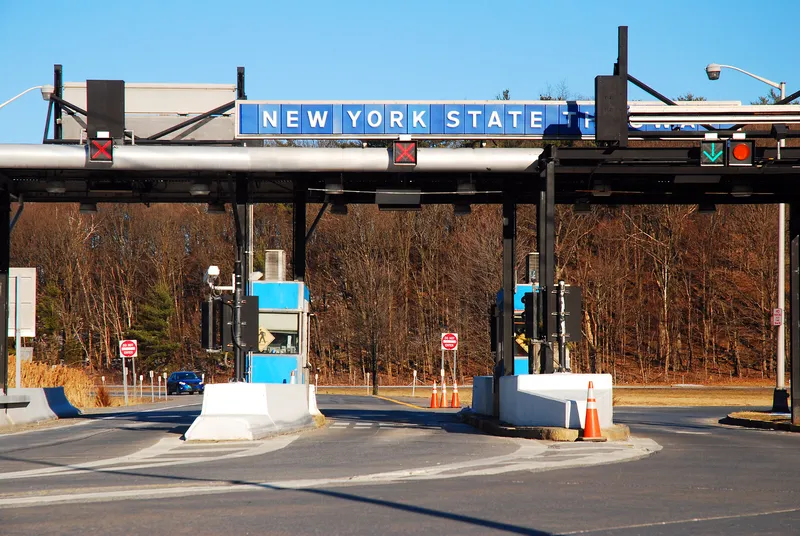A US pressure group is pushing for full funding for metropolitan transport, with a campaign that could have implications for other public transport systems. The Move NY team campaign aims to bring a faster, safer, fairer transportation system to the greater New York metropolitan region.
The Metropolitan Transportation Authority (MTA) is responsible for public transportation in the US state of New York, serving 12 counties in south-eastern New York, along with two counties in south-western Connecticut und
February 9, 2015
Read time: 3 mins
A US pressure group is pushing for full funding for metropolitan transport, with a campaign that could have implications for other public transport systems. The Move NY team campaign aims to bring a faster, safer, fairer transportation system to the greater New York metropolitan region.
The1267 Metropolitan Transportation Authority (MTA) is responsible for public transportation in the US state of New York, serving 12 counties in south-eastern New York, along with two counties in south-western Connecticut under contract to the Connecticut Department of Transportation, carrying over 11 million passengers on an average weekday system-wide, and over 800,000 vehicles on its seven toll bridges and two tunnels per weekday.
Working with its coalition partners, the campaign is calling for a fully funded MTA five-year capital plan during this legislative session and offering the Move NY Fair Plan as the best revenue source.
According to the campaigners, the US$32 billion budget which is intended to bring new bus and subway services online, modernise the 100-year old system with countdown clocks, communications-based train control (which means more frequent and less crowded subways) and rehabilitate countless stations across the five boroughs, has a budget gap of US$15.5 billion.
In the past, a variety of revenue sources has funded this critical plan, as well as taking on debt, which inevitably increases fares and tolls. The MTA has recently announced that fares will be increased in March as part of a package of increases approved for the system’s trains, buses, tunnels and bridges.
Under the increases, the bonus for pay-per-ride MetroCards will rise to 11 per cent, from 5 per cent, for anyone who puts at least US$5.50 on a card. The cost of a weekly pass will increase to US$31 from its current US$30.
Governor Andrew M. Cuomo has outlined his priorities for the state’s infrastructure and said the state would invest $750 million toward the authority’s capital plan, but he did not address the larger funding gap.
The authority’s chairman, Thomas F. Prendergast, has called the fare increases modest, and said they were needed to balance the budget against the rising costs of providing services. “I’ve recommended the fare and toll change options that are most favourable to our customers who use the services the most, our core constituency,” Prendergast said at the board meeting. He After the board meeting, Mr. Prendergast said the US$750 million proposed by Cuomo for the capital budget was the start of a dialogue.
Polly Trottenberg, New York City’s transportation commissioner, said the increases were as fair as possible. “I think you all came up with a plan which, frankly, does the least damage to the largest number of folks,” she said.
However Move NY campaigners say the continued fare increases, which are scheduled to occur every two years are unsustainable and are demanding a new solution to fund one of the world's largest transportation systems.
The
Working with its coalition partners, the campaign is calling for a fully funded MTA five-year capital plan during this legislative session and offering the Move NY Fair Plan as the best revenue source.
According to the campaigners, the US$32 billion budget which is intended to bring new bus and subway services online, modernise the 100-year old system with countdown clocks, communications-based train control (which means more frequent and less crowded subways) and rehabilitate countless stations across the five boroughs, has a budget gap of US$15.5 billion.
In the past, a variety of revenue sources has funded this critical plan, as well as taking on debt, which inevitably increases fares and tolls. The MTA has recently announced that fares will be increased in March as part of a package of increases approved for the system’s trains, buses, tunnels and bridges.
Under the increases, the bonus for pay-per-ride MetroCards will rise to 11 per cent, from 5 per cent, for anyone who puts at least US$5.50 on a card. The cost of a weekly pass will increase to US$31 from its current US$30.
Governor Andrew M. Cuomo has outlined his priorities for the state’s infrastructure and said the state would invest $750 million toward the authority’s capital plan, but he did not address the larger funding gap.
The authority’s chairman, Thomas F. Prendergast, has called the fare increases modest, and said they were needed to balance the budget against the rising costs of providing services. “I’ve recommended the fare and toll change options that are most favourable to our customers who use the services the most, our core constituency,” Prendergast said at the board meeting. He After the board meeting, Mr. Prendergast said the US$750 million proposed by Cuomo for the capital budget was the start of a dialogue.
Polly Trottenberg, New York City’s transportation commissioner, said the increases were as fair as possible. “I think you all came up with a plan which, frankly, does the least damage to the largest number of folks,” she said.
However Move NY campaigners say the continued fare increases, which are scheduled to occur every two years are unsustainable and are demanding a new solution to fund one of the world's largest transportation systems.








